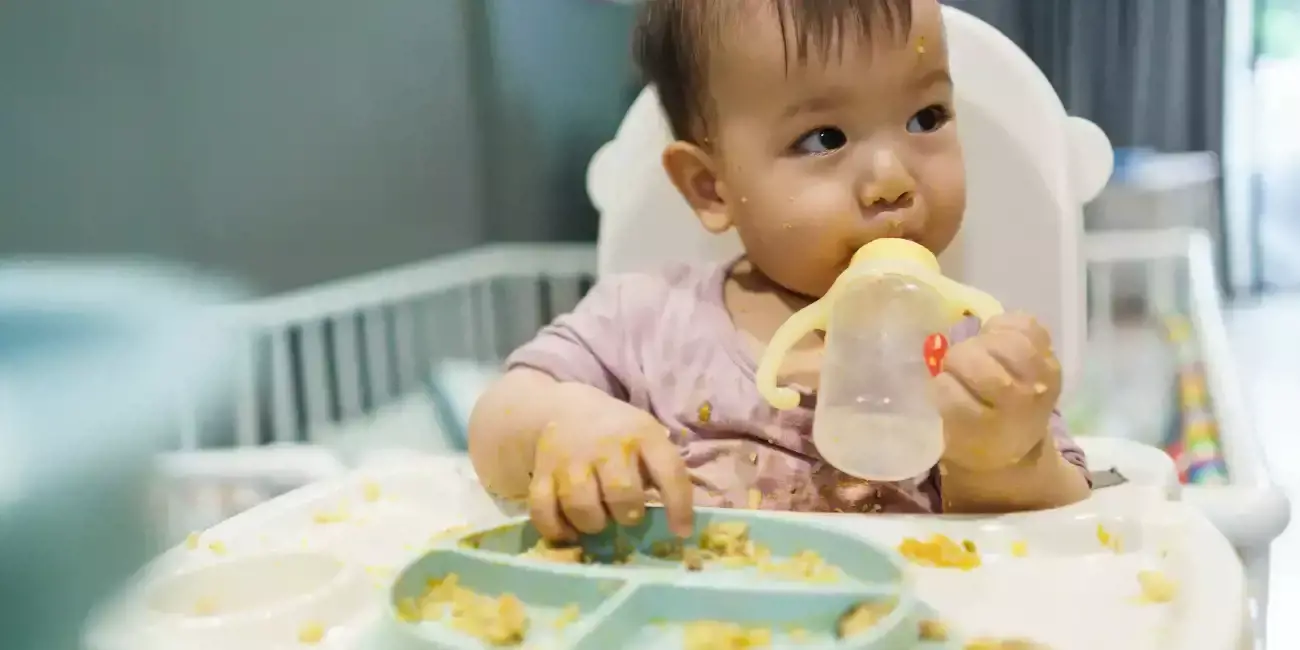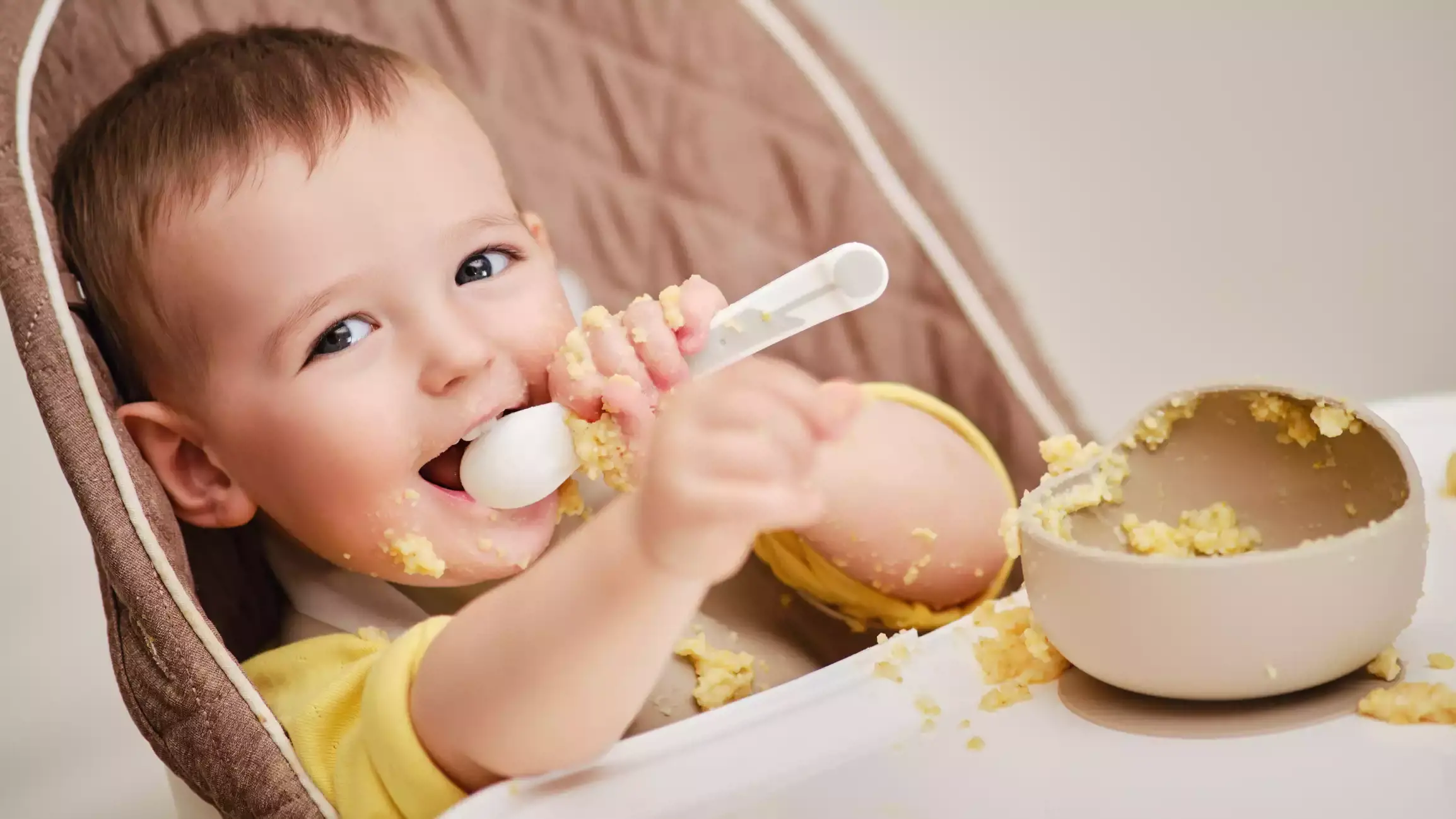Toddlers are so intuitive. There is no masking how they feel. It's right there, at times, all over the floor in an uncontrollable, hysterical mess. They are hungry, tired, cheeky, messy, annoying but of course, so very lovable.
There is so much going on in that-pint size package, and if we just focus on their eating, with no adult influence, we can learn a lot about how we are naturally wired to eat, to be healthy and live a long life.
Food is fuel with small, regular meals
If we let them, healthy toddlers eat for fuel and out of hunger. They eat intuitively as they have far more important things to do than think about eating for any other reason.
Their minds are not busy with emotional, habitual or time cues that link them to eating. They don't eat cake because their playmate didn't share the slide in the playground, or because ‘they deserve a treat'. We introduce these food-emotional cues and relationships to them.
They eat because their tummies tell them it's time. They are hungry. ‘Hangry' may kick in first, if we miss the very short window. They visibly run out of fuel, right before your eyes. They snack, limited to the options you present to them, and they get enough fuel to keep on trucking. Then they repeat.
Importantly, they also stop eating when they have had enough, as having a full tummy is not comfortable and will only slow them down.
Toddlers remind us that eating regularly is important to maintain our energy levels throughout the day, to keep us mentally and physically at our best and that going for long periods of time without food (such as the case with diet mentality or the diet culture) really affects our mood and performance.
Most importantly, they naturally have a healthy relationship with food. It is mainly for fuel, which is one of the main principles of intuitive eating, so we can do other things. When it becomes more than that, too often, we get into unhealthy territory.
Why eating variety is important
My son started telling me things were ‘boring' him, at around three years of age and hasn't stopped. Because, you know, God forbid, we might have toast for breakfast five days out of seven.
It's hard to believe that we have seen the resurrection of scurvy in Australia due to having ultra-processed, low-nutrition diets.
With only 5.2 % of children aged 2-18 years meeting the guidelines for recommended daily serves of vegetables and only one in twenty children meeting both fruit and vegetable guidelines (this stat is the same for adults), we can see our diets are not improving as we age.
Healthy toddlers like to mix it up. They like variety. At times they may only like some foods, but more often variety is what they want.
We always have a few small serving options on any given snack. Some strawberries, cut-up apple, yoghurt, and grainy crackers for example. I decide on the food choices, they decide on the volume and what they eat.
Variety in colour and whole food types is perfect for balanced nutrition. Why eat two bananas' over a day when you can have a banana and an orange? Why eat bread at breakfast (as toast) and lunch when you can have bread for breakfast and pasta at lunch? Mixing it up keeps you interested in healthy eating, while also exposing your body to more variety of nutrition.
Slowly but surely
Yes, it's a slow race getting a toddler to eat.. But, in our days of ‘not enough time', we all really need to take more time out to eat slowly. Slow eating is so much better for the gut. Good chewing of your food means less work for the gut and smaller volumes give the gut a better chance to break down the food you have eaten. This translates to you having more opportunities to get the nutrients out of the food for absorption in the small intestine.
Back to the small regular meals approach, it means you are allowing the gut to keep moving with manageable amounts, so it's not under stress and likely to give you indigestion issues. With a large volume of food in one hit, you are less likely to get all of the available nutrition out of it, with much of it wasted in the loo!
This approach to eating also helps regulate your bowels, another important factor in our mood, health and comfort levels. So slow down! It's good for you.
Food is pretty neutral
Food for a toddler is not good or bad. Because of course, toddlers are logical (said no one ever?!). But they are when it comes to food as they have not ‘learnt' otherwise yet.
With the best of intentions, we introduce and confuse concepts when trying to teach them about eating. Introducing such words forms an unhelpful relationship between eating and emotions.
Too much sugar is REALLY unhelpful
The brain needs sugar. Its most simple form, glucose, is quite literally the only fuel it can use. We get sugar in natural wholefood forms through helpful foods like fruit and dairy products, which the body breaks down into glucose and uses for fuel wherever it is needed. Insulin regulates the sugar in your blood, to make sure there is not too much or too little at any given time.
So when we have a large dose of sugar-rich foods or fluids, insulin is working overtime to make things ok. With a large hit, such as fruit juice, you will no doubt have a moment where the sugar in the blood is high, followed by a quick drop once the insulin has done its work. This ‘swing' of high and low sugar in the blood presents as mood and can also interrupt our hunger and energy levels.
Toddlers are perfect examples of how concentrated doses of sugar, natural or not, are truly unhelpful. Unless you feel like more challenges in your day… pfftt! Feed them fruit juice or cordial and watch their eyes open wide when the peak of it hits their brains. Talk about food and mood. Why would you?
Another reality is, that too much sugar, if the body does not need it for energy, will be converted to fat stores. So then of course your risks of diabetes, heart disease, cancers and lifestyle diseases go up. There is also much ongoing research into the potential link between diets high in refined sugars and unhelpful fats and depression, as well as brain disorders such as Alzheimer's.
We need small regular doses of natural sources of sugar, provided in whole foods, over the day, to help regulate our blood sugar levels and keep our brains fuelled; avoiding the peaks and lows that concentrated sugar hits invite.
Food is best worn whilst eating
Being clean?! Is that even a thing? Look, I get being tidy, teaching our kids to have manners and to use cutlery. But how fun is it to watch a toddler eat? Pure joy. Sometimes I get jealous. Free of fears around judgment from others. Wearing their entire meal from head to toe. The total body food experience.
We need to let our kids enjoy the textures and experience of their food and all the mess that invites, without putting our adult prohibitions onto their eating habits. We don't want to ruin their experience of eating intuitively by creating an association with eating and foods with the anxiety of cleaning up!
Getting dirty is important. We need more germs, more mess and less stress. We have a 30-second rule in our house. Why? Because it will only make them tougher. Plus, the dog gets it if it's there for any longer. Our OCD issues around cleanliness only weaken our kid's immune systems and beckons trouble down the track.
We need to take time out and loosen up. Get in there and join them I say. Let's get messy!
Eating Intuitively is Key to a Natural and Healthy Relationship with Food
It's all about making food choices that honour our health and taste buds, and make us feel good. We need to reject diet culture just to lose weight as well as avoid emotional eating, which causes psychological health issues like low self-esteem, body issues or worst, eating disorders. We should learn from toddlers and listen to our internal cues and eat when we are hungry, stop when we are full, and embrace gentle nutrition. Once we start our intuitive eating journey, we will realize that food tastes better when we have a healthy relationship with it.
Toddlers do have it all worked out. If only we can take just a few tips from them for the benefit of our own long-term health.
Care for Kids is excited to invite Tanya to our panel of experts, sharing recipes, up-to-date information and her extensive knowledge around all things parenting, nutrition and keeping us creating beautiful food with minimal fuss!
For more information on Tanya and Bite Nutrition you can head to the website, and follow their Instagram and Facebook.




































